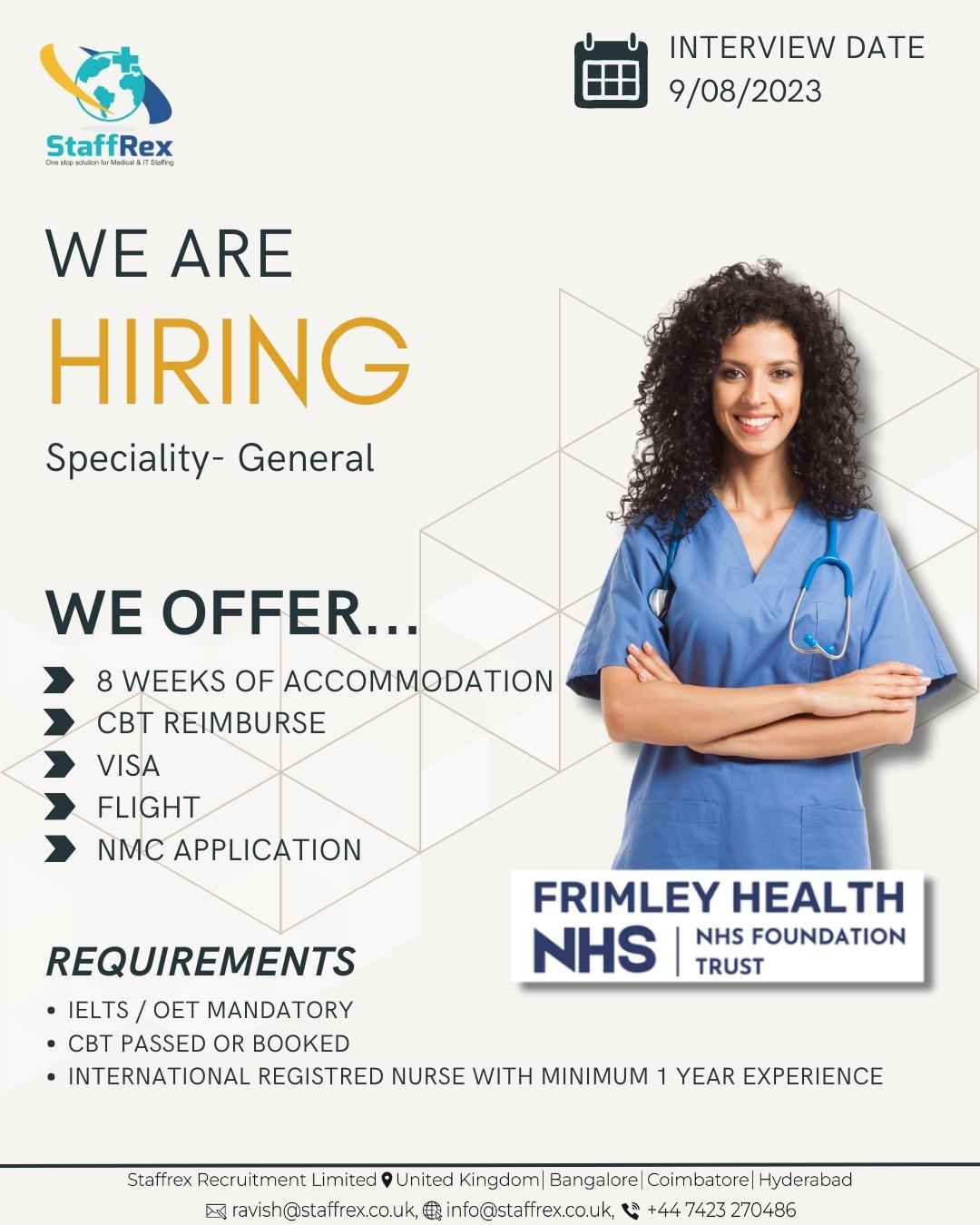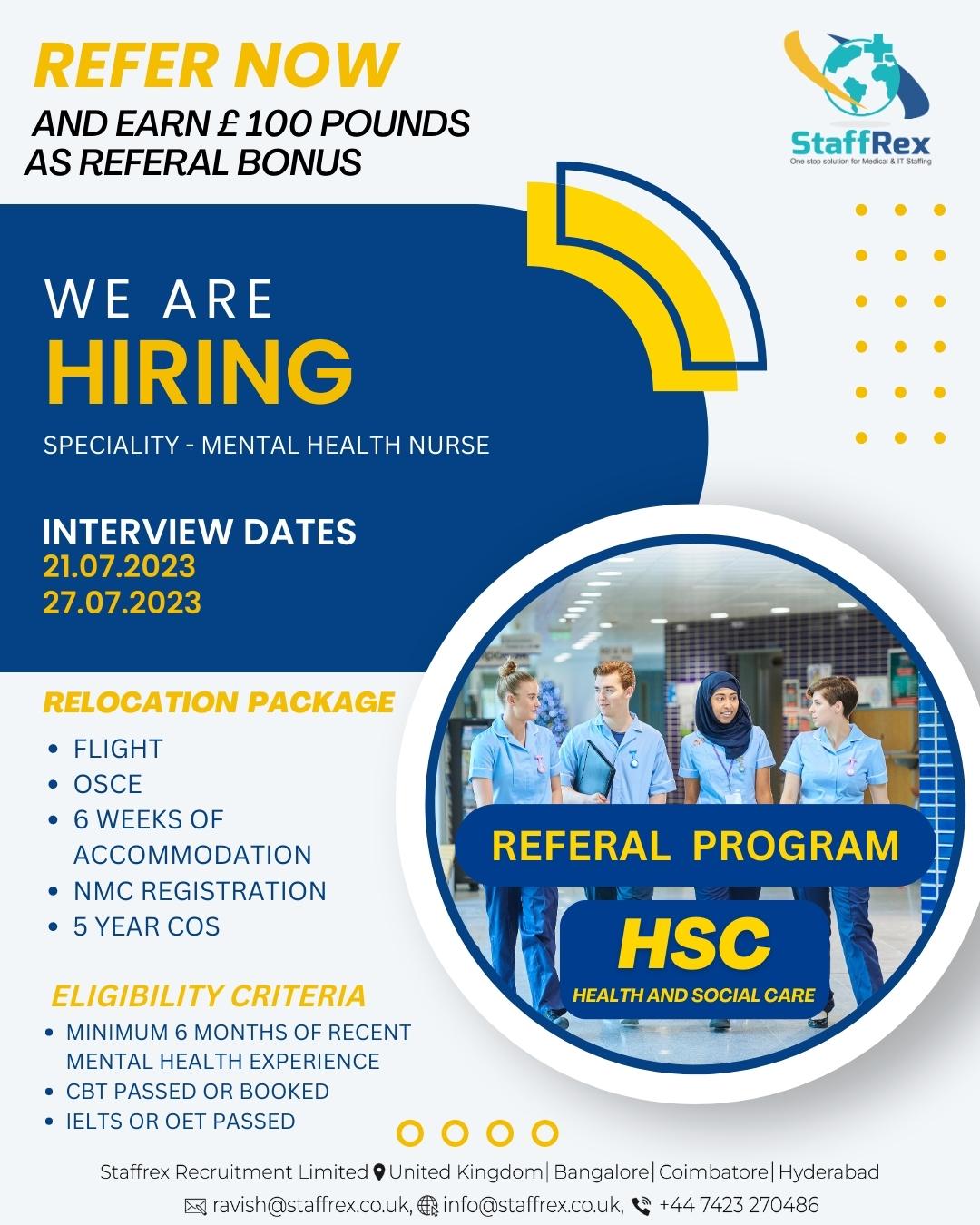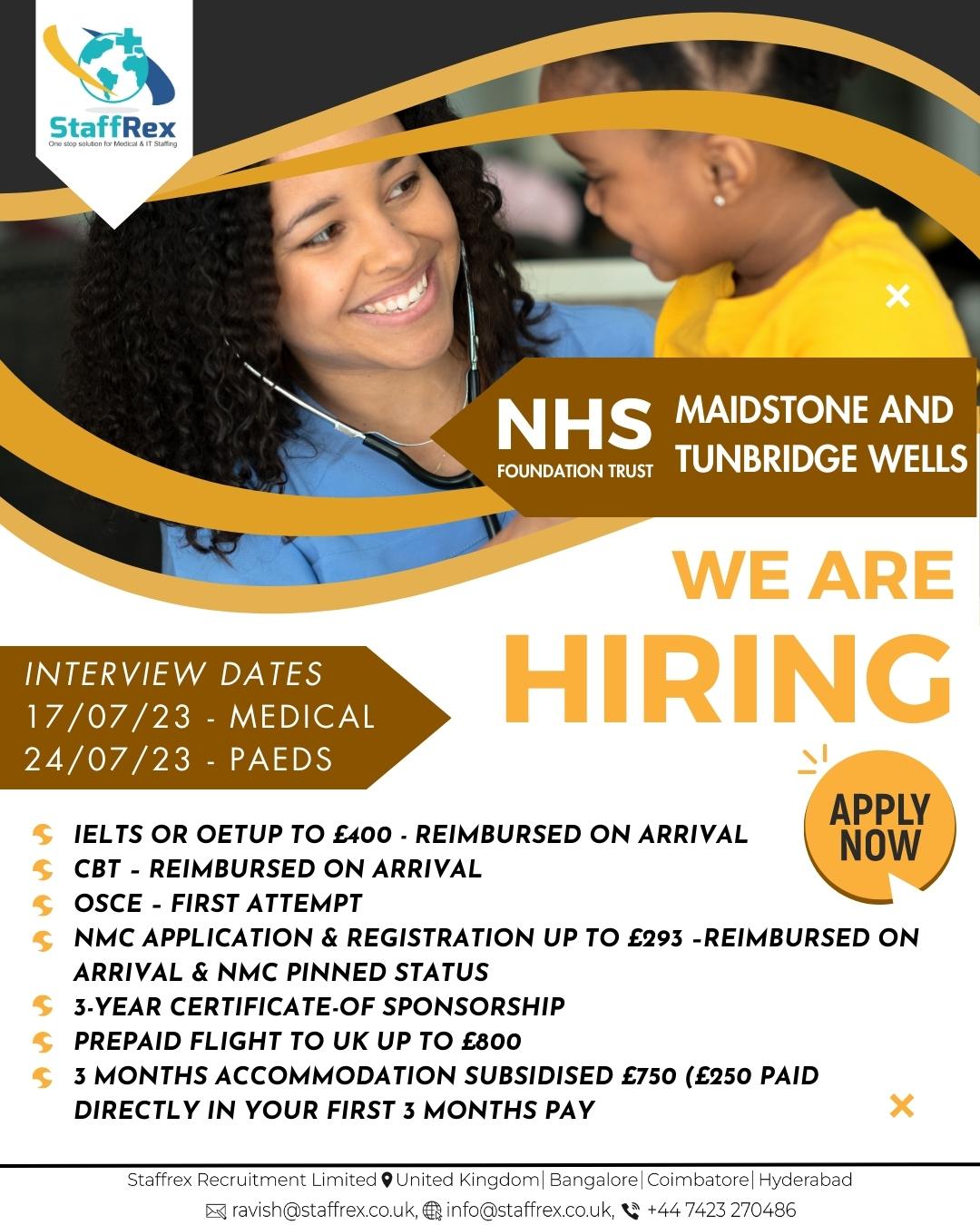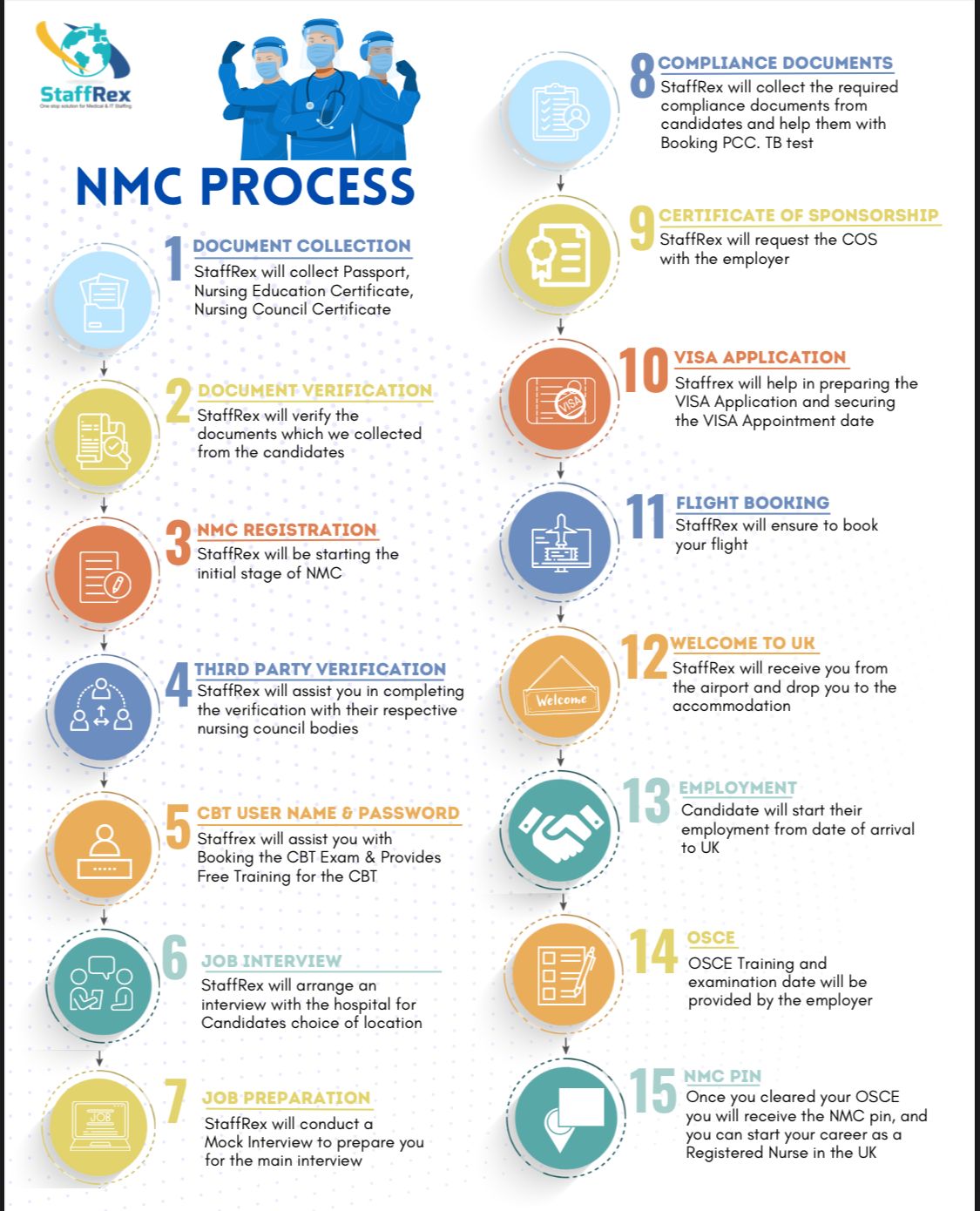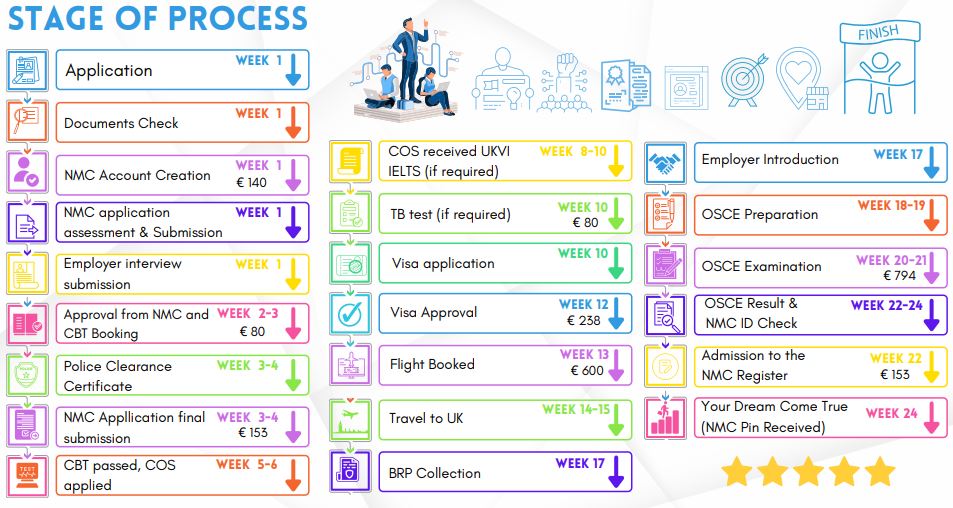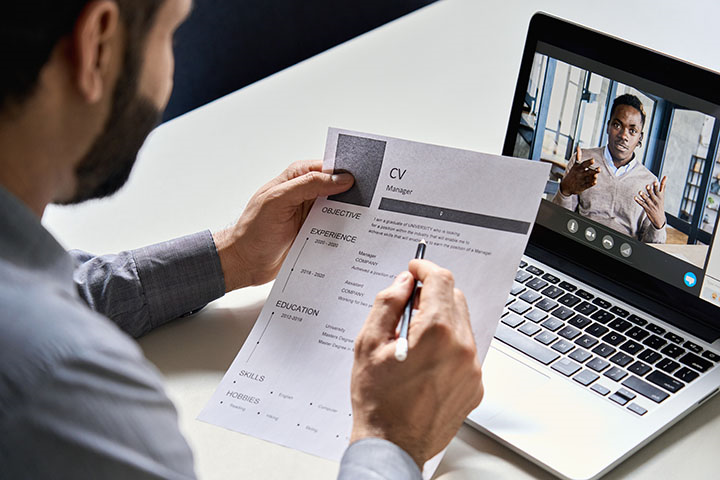Provide health evidence
NMC need to know that people applying to join our register meet our health requirements to ensure they can practise safely and effectively.
Declaring a health condition and/or disability doesn't necessarily mean you won't be able to join our register; we just need to be sure that you have taken steps to manage this, so that you're able to practise safely and effectively.
1. Complete a self-declaration
NMC need some information about the candidate's health to make sure that they are able to practise safely and effectively.
if you have a health condition and/or disability that currently affects or could affect your ability to practise safely and effectively
whether you are managing your health condition and/or disability so that you can practise safely and effectively
You don't need to tell us about any conditions you're managing appropriately.
2. Nominate someone to make a supporting declaration
NMC will ask you to provide contact details for a registered medical practitioner to give a supporting declaration about your health. This could be your GP or family doctor, or occupational health practitioner, but they cannot be a friend or family member.
You must confirm you have consent to share their details with us.
The person you nominate will need to:
- confirm they've carried out your health assessment in the last six months
- confirms they're qualified to complete your health declaration.
They will also need to either:
- verify and agree with the information you have given us about your health, or
- explain why they may not agree with what you have told us about your health and why they feel you may not be capable of safe and effective practice due to a health condition and/or disability you may have
Contact them before you begin
Make sure you contact your nominated medical practitioner before submitting your application, as we'll ask them to confirm they've completed a health assessment in the last six months as part of their declaration.
They may feel that they can do this by reviewing your medical notes, but in some instances they may want to see you in person before completing your declaration, so it's important you speak with them first before submitting your application.
Your application may be delayed if you don't contact them before submitting, as we'll only be able to assess your registration application once we've received this information.
Provide character evidence
NMC need to ensure that people applying to join our register are of sufficiently good character to practise safely and effectively.
1. Complete a self-declaration
- police charge, caution, conviction or conditional discharges you've received
- determinations made by any regulatory body in the UK (other than the NMC) or overseas
NMC don't need to know about any:
- protected police charge, caution, conviction or conditional discharges that would not be shown on a police clearance or DBS check
- police charges where the police took no further action
- motoring offences (unless it resulted in disqualification)
What if I declare I have a police charge, caution, conviction or conditional discharge or regulatory determination?
As part of your application, we'll give you an opportunity to tell us about the incident or findings to help us assess your application.
NMC won't stop you from submitting your application if you don't provide any more information, but it would help us to assess your application more quickly if you do.
NMC will ask you to provide details about the offence or determination, as well as a reflective statement about the incident. We're interested in your insight and understanding about the incident, the potential impact on your ability to practise safely and effectively, and how you have made sure it won't happen again.
2. Upload police clearances and DBS certificates
You will need to provide a police clearance from each overseas country you have lived in for 12 months or more (in total, not necessarily consecutive) in the last ten years.
Also, if you've lived in the UK for 3 months or more, you'll need to provide a Disclosure and Barring Services (DBS) check.
These documents must have been issued after you left each country, otherwise we may ask you to get a more recent version when we assess your application.
Your police clearance from the country you're residing in at the time of your application should be issued no more than 12 months before the date we're assessing your application.
Provide language evidence
NMC need some information about your English language ability to make sure that you're able to practise safely and effectively.
We ask everyone to provide one form of evidence that shows us how you meet the standards we have set.
This means you'll either have:
- recently achieved the required score in one of the English language tests accepted by the NMC - you must achieve the required score in each of the four skills of reading, writing, listening and speaking.
- a pre-registration nurse, midwife or nursing associate qualification which was taught and examined in English.
- recent practice of at least one year in a majority English speaking country.
Our English language guidance sets out the details for each type of evidence and how our requirements can be met. We strongly recommend you read this.
1. Confirm which evidence you have
NMC ask you which of the evidence types you will be using to demonstrate how you meet our English language requirements.
2. Provide your evidence
Using an accepted English language test
IELTS
If you're using an IELTS test, you'll need to provide your IELTS certificate and TRF number. We'll use this to verify your results when assessing your application.
The TRF number is usually 18 characters long, made up of both numbers and letters. You can find this on your IELTS certificate.
You'll need to provide both certificates and TRF numbers if you're using two IELTS tests to meet our requirements.
OET
If you're using an OET test, you'll need to provide your OET certificate and candidate number, which we'll use to verify your results.
You'll need to provide both certificates if you're using two OET tests, and we'll be able to verify these using your candidate number.
It's important you have given permission for us to verify your OET results before you submit your application through your my OET account otherwise this may delay your application. Find out how to give a verification institution access to your results on the OET website.
Using your training
You'll need to provide evidence that shows how your training meets our English language requirements, such as a transcript of your training.
If you did not train in a majority English-speaking country, your transcript must confirm that the programme was composed of at least 50 percent clinical interaction. Your transcript must also clearly demonstrate at least 75 percent of that was with patients, service users, their families and other healthcare professionals and must have taken place in English.
We may also ask for additional information from someone senior at your training institution, such as the Dean or head of department.
If you did not train in a majority English-speaking country, we'll consider evidence that meets the criteria set out in our English Language guidance, but please be aware that it's likely that you'll need to provide an alternative type of evidence such as a language test.
What must my transcript include?
A transcript is an official copy of your academic record. It shows all modules you completed as part of your course.
You should provide a personal transcript with your name on it, rather than a generic course syllabus. It should clearly show the breakdown of clinical and theory hours of your course.
I don't have my transcript
If you didn't receive a transcript when you graduated, you should contact your training institution to request a copy.
If your training institution has closed down, we recommend that you contact the regulator in your country of training to see if they are able to provide a copy for you.
Using your registered practice
If you have recent practice of one year in a majority English-speaking country, we'll ask you to give details of your registration, upload a copy of your registration certificate and tell us how your language was assessed to enable registration with your regulator.
You'll need to show that you have been practising recently to meet our requirements, so you should provide us with your most recent registration certificate.
We'll ask you to provide details of your employer in the country you were or are currently practising in so we can confirm your employment with them. We'll also ask them to confirm whether you have the necessary knowledge of English to practise safely and effectively.
Professional indemnity arrangement
NMC will ask you for the scope of practice and setting you plan to work in once you become registered.
it's a legal requirement for everyone on our register to have an appropriate indemnity arrangement in place for when they practise in their professional capacity.
In your application, we'll ask you to declare that you have (or will have) appropriate indemnity cover in place for whenever you practise.
You don't personally need to hold your indemnity cover, but it's your responsibility to ensure that appropriate cover is in place, so it's worth checking with your employer or insurance provider to confirm this.
When you're ready to submit your application, you'll need to pay the 153 registration fee.
You won't be able to submit your application until you pay the registration fee.
This fee will be refunded if:
- you withdraw your application before we can complete your registration
- we close your application because you didn't return the required supporting evidence within the timescales we gave you
- your application is unsuccessful because we determine that you don't meet our registration requirements.
You should review your application to make sure all the details are correct to avoid any delays.
Once we've received all your supporting information, we'll aim to assess your application within 30 days. We'll then contact you by email to let you know the decision and your next steps.
We're required to make a decision on your application within three months of receiving your completed application. If we fail to do this, you have a right of appeal.



